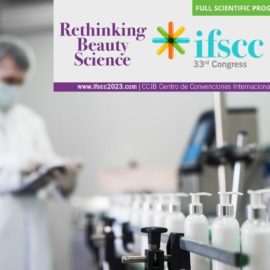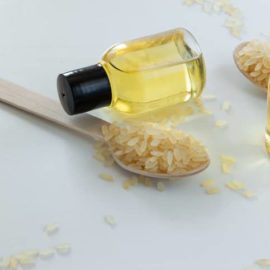Managing waste is an essential aspect of sustainable production, but BPC should aim higher. Striving towards a zero-waste value chain means that nothing is discarded in the development or manufacturing process, nor is any part of the product sent to landfill – ideally, any byproduct is reused or recycled. Although this may sound ambitious, there is a sound, market-driven demand for zero-waste cosmetics: Right now, 44% of US consumers would buy BPC products made from organic waste from other industries (Mintel, 2020).
But how can the beauty industry bring waste under control? Currently, Euromonitor estimates that the industry produced 76.8 billion plastic packaging units in 2017 alone, which is quite a staggering quantity. To dent this number, ethical beauty brands need to take decisive action: produce multifunctional products to streamline routines; create recyclable packaging solutions; and use recycled or upcycled natural ingredients wherever possible.
This project begins at the very beginning of the production process. As soon as the ingredients for a product are picked, harvested, pressed, or synthesized, the objective should be not wasting a thing. Responsible brands should know the exact origin of their ingredients and how waste is managed through this process. It’s not enough to merely buy ingredients from a retailer and hope they follow zero-waste practices; you need full transparency in the supply chain.
Content
Provital’s commitment to zero-waste cosmetics
Provital believes that reducing waste in beauty and personal care is essential to caring for the planet. And because taking care means taking action, we strive towards zero-waste practices. Taking the circular economy as a starting point, Provital seeks to enhance waste management so that everything from formulations, to design, to packaging is reusable, recyclable, and sustainably sourced.
By 2016, Provital had managed to recover 82% of all the waste generated in the production process, and last year, we generated just 0.22kg of waste for every kilo of product produced. We extend this ethos to every aspect of our operation: for instance, we have initiated a pilot project with Barberà del Vallès City Council to collect and recycle the organic and plastic waste generated in our industry canteens.
Case study: The development of Hydrafence™
Hydrafence™, launched in 2019, is an active ingredient that demonstrates our commitment to zero-waste cosmetics. Innovating with awareness, Hydrafence™ is a natural active moisturizer and skin barrier enhancer based on a new hydrocolloid matrix of rice amylopectin, containing a calcium-rich fraction extracted from Lithothamnion calcareum algae. Hydrafence™ is a dual-action ingredient, providing immediate moisturizing action 30 minutes after application, and subsequently, 120 hours of lasting hydration.
This development process was inspired by the concept of the circular economy and the 17 points of the UN Sustainable Development goals in mind, especially SDG 2 (Zero Hunger) and SDG 12 (Ensuring Sustainable Production and Consumption Patterns). To meet these goals, Provital developed an upcycled product: we used the byproducts of rice cropping to develop one of the key components of the active ingredient.
By utilizing a resource that would otherwise go to waste and transforming it into a valuable substance, we enhanced the value of the raw materials while supporting a circular economy model. Equally, through utilizing the byproducts of rice cropping, Provital upcycles ingredients without compromising on rice’s position as a vital food source, and meanwhile, mitigate damage to the environment through zero waste principles.
Hydrafence™ is just one part of Provital’s wider zero waste project. Looking to the future, we aim to create more nourishing, natural active ingredients via 100% sustainable sources and upcycled substances. By facilitating a circular economy at the ingredient level, Provital hopes to inspire the wider industry to strive for zero waste cosmetics.
Hydrafence™ is just one part of Provital’s wider zero waste project. Looking to the future, we aim to create more nourishing, natural active ingredients via 100% sustainable sources and upcycled substances. By facilitating a circular economy at the ingredient level, Provital hopes to inspire the wider industry to strive for zero waste cosmetics.
No comments yet
There are no comments on this post yet.





Leave a comment